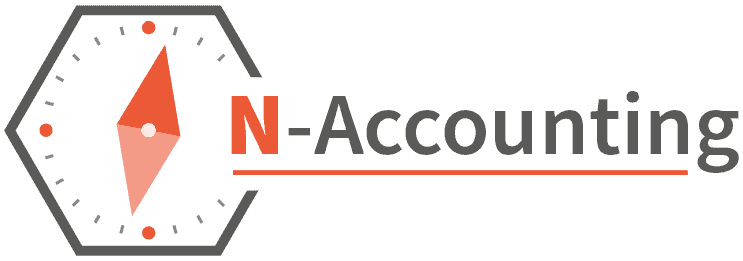Northants Accounting have helped a number of business start-ups in Northampton, in many cases we have saved clients money through tax improvements and have created business growth through planning activities.
With tax timing can be absolutely critical and seeking an accountants advice in the early stages of your business can be far more beneficial than waiting until your first year end. As the accountancy services that we provide our clients in Northampton are priced based on their business year ends and not when they contact us then there is no additional cost to seeking our advice earlier.
This new business checklist will help you insure that you don’t miss any of the key steps in starting a business, a printable version can be found here.
The Business Plan
This is undoubtedly the most important thing you will do when starting out, it helps you focus your ideas into a realistic and achievable plan of action and will keep you heading in the right direction when you are busy running your business, a good plan will also force you to consider things like the competition, your weaknesses and make you put in place a strategy to overcome them.
They are also essential when trying to raise funding as many banks in Northampton will want to see a business plan to reassure them that your business is a good investment and outlines how you will pay them back their money.
Often the original business plan becomes obsolete as entrepreneurs react to new ideas and information once trading has begun, its important however to continuously update the plan so that everything is once again considered and you don’t miss out on any opportunities or fail to notice any risks to your business.
Raise Funding
The business plan will give you an idea of the amount of money you will need to start your business, it is then time to go and find a way to achieve it. You may already have money set aside in your savings but it is still a good idea to come up with a contingency plan if unexpected circumstances arise and you require more money.
It can be difficult to obtain a loan from day one from a bank as they are often reluctant to lend to businesses that don’t have any trading history, there are however several government backed organisations in Northampton that will provide your business with small loans and grants as long as your business plan stacks up.
Decide on a Business Structure
If you are starting out on your own and you are in it to make money then this choice will be between being a sole trader and a limited company, sole traders generally have lower accountancy fees and can claim tax rebates if you make a loss, whereas limited companies often have significantly reduced tax rates and personal risk, the correct answer for you will ultimately depend on what you expect your earnings to be over the first couple of years and how risky you industry is.
If there is more than one owner you could also adopt a partnership structure or become a charity if you are set up to help the local community in Northampton, regardless of the structure you go with you will always be able to change it later on.
Incorporate a company
If you have decided to go with a limited company structure then you will need to choose a company name and incorporate it, this will involve issuing shares and nominating a director as well as a company secretary, the sole director can also be the company secretary so it is possible to run a limited company on your own if required.
The registered office address doesn’t have to be the same as your business address in Northampton and you could use your home address instead or even a virtual office, however it is important that you pick one where you can easily access your mail.
Once incorporated HMRC will send you a unique tax reference (UTR) for your company and this will be needed to submit tax returns and pay taxes, this is different from your own UTR which you will receive if you register for self-assessment as a director.
Register for a Bank Account
Due to anti money laundering regulations in the UK setting up a business bank account can be more complex then setting up a personal one. Generally a meeting with the bank manager at a local branch in Northampton is required although some accounts can be set up over the phone if you already have a history with the bank.
Business banking can be expensive as charges are based on the number of transactions, however most banks offer a free period of between a year to two years for new businesses, this means that it is often a good idea to shop around but the levels of service should also be a consideration as complications with your bank can hold you back from growing.
Notify HMRC of the start of trade
This is important as it informs HMRC that you are trading and that they should issue you with tax returns this will need to be done regardless of if you are a sole trader, partner or the director of a limited company.
Register for class 2 National Insurance
Class 2 NIC’s are charged at £2.75 a week and need to be paid separately from the remainder of your tax bill, there are exemptions you can apply for if you qualify for low earnings or are a director, however failing to pay anything in a tax year may reduce your state pension when you retire.
Set up a Bookkeeping System
Bookkeeping is the practice of recording the transactions into and out of your business, this includes any income, loans, expenses or assets you have received or paid out for, it is important as it forms the underlying proof to your year-end accounts and tax returns and if done well and honestly can protect you in the event of a HMRC enquiry.
Any transactions recorded for bookkeeping should be dated, with a brief but relevant description and the amount paid or received with any VAT related to it recorded. A basic bookkeeping system could be a list of transactions on a piece of paper or an advanced one could be done via a computer program, a good standard of bookkeeping will often reduce your accountancy fees as it makes it easier to process your tax returns and accounts.
We have worked with many of our clients in Northampton to help them develop bookkeeping systems that they felt comfortable with and could use with minimum effort.
Set up Payroll
If you are planning to take on staff then your may be required to operate a payroll system depending on how much you pay them. Once registered you will need to download some payroll software to file real time information (RTI) returns every time you make a payment.
Arrange Insurances
Every business will need some form of insurance this could include:
Employee’s liability
Employer’s liability
Public liability
Professional indemnity
Equipment cover
Premises insurance
Loss of earnings
Critical illness cover
IR35 cover
Start Trading
Once you have worked through this checklist you will be ready to start trading, however it is important to check that you have any industry specific approvals that you might need relating to your business, this could include food hygiene certificates or event licences from Northamptonshire council.
If you are looking for an office, check out Prime Find for a range of office space suitable for small businesses.
Submit tax returns & Pay taxes
After the first tax year is over (April 5th) or your first accounting period if you are a limited company you will need to submit a tax return and pay taxes to HMRC if you have made a profit, or you may be entitled to a refund if you have made a loss. As a limited company you will also need to file accounts and an annual return with companies house.
Marketing is also a huge part of starting a business, have a look at our own experiences here.
As Chartered Management Accountants running our own business we are in an ideal position to advise start-up’s on how to get it right from the beginning, contact us to discuss you start-up plans.
Nishi Patel





















